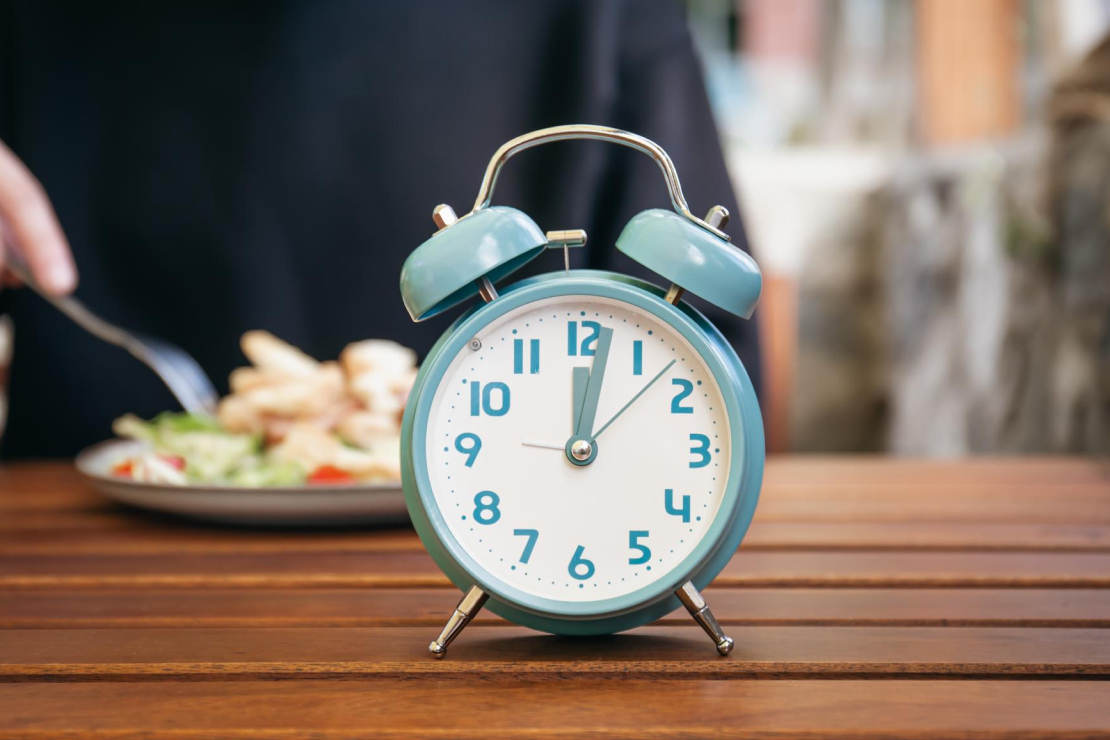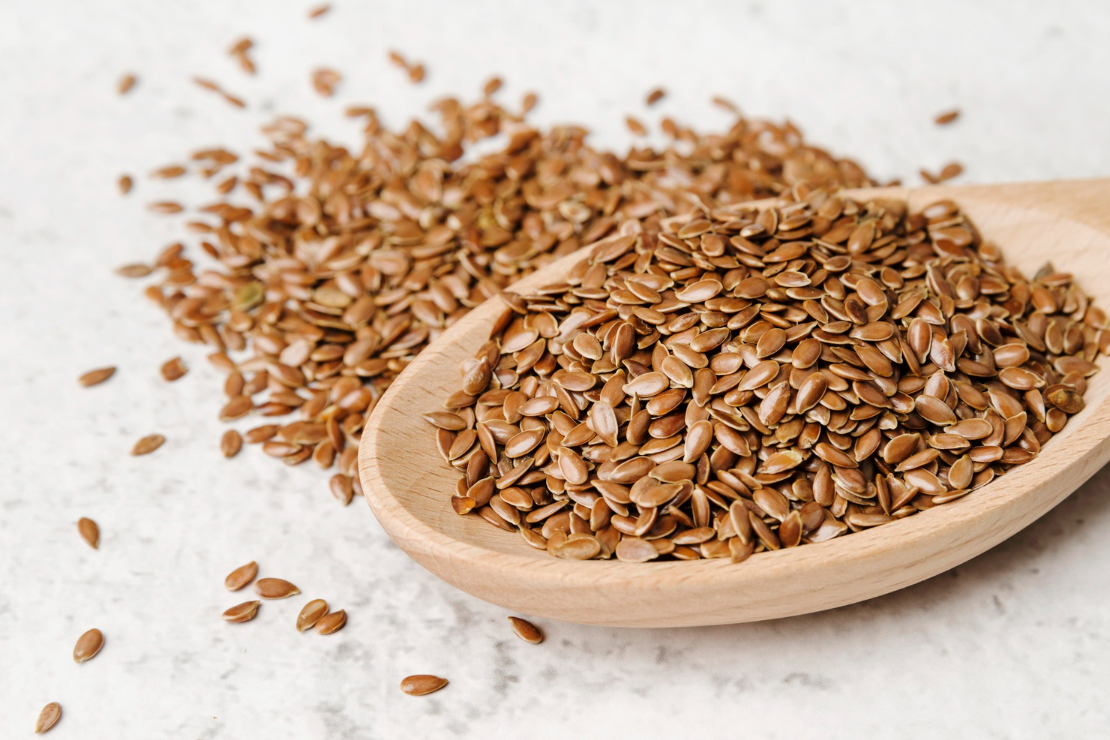What Time of Day Is Best to Eat for Hormone Balance?
Unlock the secrets of chrononutrition: Discover how aligning your meal timing with your body's natural circadian rhythms can optimize insulin, cortisol, ghrelin, and leptin for better hormone balance, weight management, and overall health.

Table of Content
The Unseen Orchestration: How Meal Timing Influences Your Hormones
In the intricate symphony of human physiology, hormones act as the master conductors, orchestrating nearly every bodily function, from metabolism and mood to sleep and satiety. While the "what" we eat has long dominated nutritional discourse, a burgeoning field known as chrononutrition is revealing the profound impact of "when" we eat. Our meal timing, far from being a mere convenience, can significantly influence the delicate balance of our hormones, affecting everything from our energy levels and weight to our sleep quality and long-term health. This comprehensive guide delves into the science of how aligning your eating patterns with your body's natural rhythms can optimize your hormonal health.
The Body's Internal Clock: Circadian Rhythms and Metabolic Harmony
At the core of chrononutrition lies the circadian rhythm, our intrinsic 24-hour biological clock. This internal timer, primarily regulated by light and darkness, governs a multitude of physiological processes, including sleep-wake cycles, body temperature, and, crucially, hormone secretion and metabolic function.
- Master Clock (Suprachiasmatic Nucleus - SCN): Located in the hypothalamus of the brain, the SCN synchronizes all peripheral clocks in organs like the liver, pancreas, and fat tissue.
- Peripheral Clocks: These organ-specific clocks dictate when enzymes are most active, when hormones are released, and how efficiently nutrients are processed.
- Light as a Zeitgeber: Exposure to natural light, especially in the morning, helps set and maintain the rhythm of the SCN. Conversely, artificial light at night can disrupt it.
- Food as a Zeitgeber: The timing of food intake also acts as a powerful signal, influencing the synchronization of peripheral clocks, particularly in metabolic organs.
When our eating patterns are out of sync with our circadian rhythms (e.g., eating late at night), it can lead to a state of "circadian misalignment," which has detrimental effects on hormonal balance and metabolic health.
Key Hormones Influenced by Meal Timing
Several critical hormones are particularly sensitive to the timing of our food intake. Understanding their daily fluctuations and how eating affects them is key to optimizing hormonal balance.
1. Insulin: The Blood Sugar Regulator
Insulin, produced by the pancreas, is responsible for transporting glucose from the bloodstream into cells for energy or storage. Its sensitivity varies throughout the day.
- Morning Sensitivity: Insulin sensitivity is generally highest in the morning. This means your body needs less insulin to process glucose efficiently, reducing the likelihood of fat storage.
- Evening Resistance: As the day progresses, particularly into the late evening and night, insulin sensitivity naturally decreases. Eating large, carbohydrate-rich meals late can lead to higher and more prolonged blood sugar spikes, requiring more insulin and potentially promoting fat accumulation.
- Impact of Misalignment: Chronic late-night eating can exacerbate insulin resistance, increasing the risk of type 2 diabetes and weight gain.
2. Cortisol: The Stress Hormone
Cortisol, released by the adrenal glands, follows a distinct circadian rhythm, peaking in the morning to help us wake up and gradually declining throughout the day.
- Morning Peak: Cortisol is naturally highest upon waking, providing energy and mobilizing glucose.
- Evening Decline: Levels should be lowest at night to facilitate sleep.
- Impact of Meal Timing: Eating large meals, especially high-sugar ones, late at night can cause a cortisol spike, disrupting its natural rhythm and potentially interfering with sleep. Chronic disruption can lead to increased abdominal fat storage and heightened stress response.
3. Ghrelin & Leptin: The Hunger and Satiety Duo
These two hormones work in opposition to regulate appetite. Ghrelin stimulates hunger, while leptin signals fullness.
- Ghrelin Rhythm: Ghrelin levels typically rise before anticipated meal times and fall after eating. Sleep deprivation and irregular eating patterns can disrupt this rhythm, leading to increased ghrelin and persistent hunger.
- Leptin Rhythm: Leptin levels generally increase after meals and are higher at night. Chronic overeating, especially late at night, can lead to "leptin resistance," where the brain no longer effectively receives satiety signals, promoting overconsumption.
- Impact of Meal Timing: Eating within a consistent, earlier window can help regulate these hormones, reducing cravings and promoting natural satiety.
4. Growth Hormone (GH): The Repair and Rejuvenation Hormone
Growth hormone is crucial for muscle repair, fat metabolism, and cellular regeneration. Its secretion is highest during deep sleep.
- Nighttime Release: The majority of GH is released during the early stages of deep sleep.
- Impact of Meal Timing: Eating too close to bedtime, particularly high-carb or high-fat meals, can elevate insulin levels, which suppresses GH release. This can impair muscle repair, fat burning, and overall recovery.
5. Thyroid Hormones: The Metabolic Regulators
Thyroid hormones (T3 and T4) regulate your body's metabolic rate. While not directly influenced by single meals, chronic meal timing misalignment can impact thyroid function.
- Indirect Impact: Chronic sleep disruption, elevated cortisol, and insulin resistance (all influenced by meal timing) can negatively affect the conversion of T4 to the active T3 hormone, potentially slowing metabolism.
Optimal Eating Windows for Hormone Balance: The Chrononutrition Approach
Based on the science of circadian rhythms and hormonal fluctuations, chrononutrition advocates for an eating pattern that aligns with our natural biological predispositions.
1. The Early Eating Window: Aligning with Biology
This approach, often referred to as early time-restricted eating (eTRE), involves consuming all your meals within a compressed window that ends in the late afternoon or early evening (e.g., 8 AM to 4 PM, or 9 AM to 5 PM).
- Benefits:
- Enhanced Insulin Sensitivity: Maximizes nutrient processing when the body is most efficient.
- Improved Fat Burning: Extends the overnight fasted state, encouraging the body to tap into fat stores for energy.
- Better Sleep Quality: Allows the digestive system to rest before bedtime, promoting more restorative sleep.
- Reduced Late-Night Cravings: Naturally curbs mindless snacking during the evening, a common pitfall for weight gain.
- Optimized Cortisol Rhythm: Supports the natural decline of cortisol in the evening, aiding relaxation.
- Considerations:
- May be socially challenging due to early dinner cut-off.
- Requires adaptation, as initial evening hunger can be intense.
2. The "Breakfast Like a King, Dinner Like a Pauper" Principle
This traditional wisdom finds strong support in chrononutrition. Distributing your calories with a larger breakfast, moderate lunch, and lighter dinner can significantly benefit hormone balance.
- Breakfast: Make it your largest meal, rich in protein, complex carbohydrates, and healthy fats. This capitalizes on peak insulin sensitivity and provides sustained energy for the day.
- Lunch: A balanced, moderate meal to maintain energy and satiety.
- Dinner: Keep it light, focusing on lean protein and non-starchy vegetables. Aim to finish eating at least 2-3 hours before bedtime to allow for digestion and optimal hormone release during sleep.
Practical Strategies for Hormone-Friendly Eating
Implementing chrononutrition principles doesn't require drastic changes, but rather mindful adjustments to your daily routine.
1. Breakfast Timing: The Golden Hour
- Eat Soon After Waking: Aim to consume your first meal within 1-2 hours of waking. This signals to your body that the feeding window has begun, helping to regulate cortisol and kickstart metabolism.
- Prioritize Protein: A protein-rich breakfast (20-30g) is crucial. It promotes satiety, stabilizes blood sugar, and sets a positive hormonal tone for the day. Examples: eggs, Greek yogurt, protein smoothie.
2. Lunch Timing: Midday Refuel
- Consistent Midday Meal: Consume lunch around 4-5 hours after breakfast. This prevents excessive hunger and maintains stable blood sugar levels.
- Balanced Macros: Ensure a good balance of protein, complex carbs, and healthy fats to sustain energy through the afternoon.
3. Dinner Timing: The Early Cut-Off
- Finish Early: Ideally, aim to finish your last meal 2-3 hours before your usual bedtime. For many, this means eating dinner by 6-7 PM.
- Keep it Light: Focus on lean protein (e.g., fish, chicken, tofu) and plenty of non-starchy vegetables. Limit heavy carbohydrates and fats, which can interfere with sleep and growth hormone release.
4. Strategic Snacking: Mindful Bridges
- Avoid Mindless Snacking: If you need a snack, choose nutrient-dense options that bridge hunger between meals without causing blood sugar spikes.
- Protein/Fiber Focus: Opt for snacks like a handful of nuts, a piece of fruit with nut butter, or Greek yogurt.
- Listen to True Hunger: Differentiate between physical hunger and emotional eating.
Foods that Support Hormone Balance (and Timing Considerations)
Beyond timing, the quality of your food plays a vital role in providing the building blocks and signals for healthy hormone production.
- Lean Proteins: Chicken, turkey, fish, eggs, legumes, tofu. Provide essential amino acids for hormone synthesis. (Distribute throughout the day, especially at breakfast and dinner).
- Healthy Fats: Avocados, olive oil, nuts, seeds, fatty fish (salmon, mackerel). Crucial for steroid hormone production (estrogen, testosterone, cortisol) and cell membrane integrity. (Include with all meals, especially breakfast and lunch).
- Complex Carbohydrates: Whole grains (quinoa, brown rice, oats), sweet potatoes, vegetables. Provide sustained energy and fiber, which helps regulate blood sugar and eliminate excess hormones. (Focus on breakfast and lunch; moderate amounts at early dinner).
- Fiber-Rich Foods: All vegetables, fruits, legumes, whole grains. Supports gut health (which influences hormone metabolism) and helps excrete excess hormones. (Include generously with all meals).
- Cruciferous Vegetables: Broccoli, cauliflower, Brussels sprouts, kale. Contain compounds that support liver detoxification and healthy estrogen metabolism. (Include regularly, especially at lunch and early dinner).
- Probiotic-Rich Foods: Yogurt, kefir, kimchi, sauerkraut. Support a healthy gut microbiome, which plays a role in hormone regulation (e.g., estrogen metabolism). (Include daily, ideally with breakfast or lunch).
Foods that Disrupt Hormone Balance (and Timing Considerations)
Certain foods, particularly when consumed at suboptimal times, can negatively impact hormonal harmony.
- Refined Sugars and Processed Foods: Candies, pastries, sugary drinks, white bread. Cause rapid blood sugar spikes and insulin surges, leading to insulin resistance and inflammation. (Minimize overall, especially avoid late at night).
- Excessive Caffeine: While moderate caffeine can be beneficial, too much, especially late in the day, can elevate cortisol and disrupt sleep, impacting multiple hormones. (Limit intake, avoid after early afternoon).
- Alcohol: Can disrupt sleep, impair liver function (which metabolizes hormones), and affect blood sugar. (Minimize overall, especially avoid late at night).
- Unhealthy Fats (Trans Fats, Excessive Omega-6): Found in fried foods, some processed snacks. Promote inflammation, which can negatively impact hormone signaling. (Minimize overall).
- Large, Heavy Meals Late at Night: Overload the digestive system when it's naturally slowing down, leading to elevated insulin and suppressed growth hormone. (Avoid).
Individual Variations and Listening to Your Body
While chrononutrition provides valuable guidelines, it's crucial to remember that individual responses can vary. Factors like genetics, activity level, stress, sleep quality, and existing health conditions (e.g., PCOS, thyroid issues) can influence your optimal eating window and hormonal response.
- Experiment and Observe: Pay attention to how different meal timings affect your energy levels, hunger, mood, sleep, and digestion.
- Track Your Progress: Use a nutrition tracking app to monitor your food intake, energy, and any symptoms. This objective data can help you identify your unique patterns.
- Consult a Professional: If you have specific health concerns or hormonal imbalances, work with a registered dietitian or endocrinologist who can provide personalized guidance.
The Role of AI in Optimizing Meal Timing for Hormones
Artificial intelligence is revolutionizing personalized nutrition by taking the guesswork out of optimizing meal timing for hormone balance. AI-powered nutrition apps can analyze vast amounts of data to provide insights and recommendations that are tailored to your unique physiology and lifestyle.
- Integrated Data Analysis: AI can combine data from your food logs, wearable devices (sleep, activity, heart rate variability), and even self-reported mood to identify correlations between your eating patterns and hormonal responses.
- Personalized Meal Timing Suggestions: Based on your data, AI can suggest optimal times for your meals and snacks to support your specific hormonal goals (e.g., "Eat your last meal by 6:30 PM to optimize overnight growth hormone release").
- Real-Time Feedback: Some advanced AI systems can provide real-time alerts if your eating patterns are deviating from your optimal window or if a meal is likely to cause a significant hormonal disruption.
- Adaptive Recommendations: The AI continuously learns from your body's responses, refining its recommendations over time to ensure maximum effectiveness.
- Nutrient Timing for Hormones: AI can help ensure you're consuming the right macronutrients at the right times to support specific hormones (e.g., higher carbs post-workout to replenish glycogen without disrupting evening cortisol).
Conclusion: Eating with Intent for Hormonal Harmony
The timing of your meals is a powerful, yet often underestimated, lever for optimizing hormone balance, weight management, and overall health. By consciously aligning your eating patterns with your body's natural circadian rhythms, you can support the optimal function of key hormones like insulin, cortisol, ghrelin, leptin, and growth hormone. This shift from simply "what" to "when" you eat can lead to profound improvements in energy, sleep, satiety, and body composition.
Embrace the principles of chrononutrition, experiment with earlier eating windows, prioritize nutrient-dense foods, and listen attentively to your body's signals. Leveraging AI-powered tools can provide invaluable data and personalized guidance on this journey. By eating with intent and respecting your body's natural rhythms, you can unlock a new level of hormonal harmony and well-being.
"Your body is a finely tuned instrument. The timing of your fuel intake is just as important as the quality of the fuel itself in achieving peak performance and hormonal balance."
Frequently Asked Questions
Is intermittent fasting good for hormone balance?
Intermittent fasting, particularly early time-restricted eating (eTRE), can be beneficial for hormone balance by improving insulin sensitivity, regulating ghrelin and leptin, and supporting the natural circadian rhythm of cortisol. However, extreme or prolonged fasting can sometimes disrupt hormones, especially in women, so individual response and professional guidance are key.
Can eating late at night cause hormonal imbalance?
Yes, eating large or heavy meals late at night can disrupt several hormones. It can decrease insulin sensitivity, elevate evening cortisol (interfering with sleep), and suppress growth hormone release, all of which can contribute to weight gain and metabolic dysfunction over time.
What is the best time to eat carbs for hormone balance?
Generally, consuming the majority of your carbohydrates earlier in the day (breakfast and lunch) is recommended due to higher insulin sensitivity. If you exercise in the evening, a moderate amount of complex carbs post-workout can be beneficial for glycogen replenishment without significantly disrupting sleep or evening hormones, provided it's consumed a few hours before bed.
How can I tell if my hormones are out of balance?
Symptoms of hormonal imbalance can include unexplained weight gain or loss, persistent fatigue, sleep disturbances, mood swings, increased hunger or cravings, digestive issues, and skin problems. If you suspect a hormonal imbalance, it's important to consult with a healthcare professional for proper diagnosis and guidance.
Does AI nutrition tracking consider my hormonal cycle (for women)?
Some advanced AI nutrition apps are beginning to integrate data related to the menstrual cycle for women. By tracking your cycle alongside your food intake and symptoms, these AI tools can potentially offer more nuanced recommendations that adapt to the hormonal shifts throughout the month, optimizing energy, mood, and metabolic function.
Start Your Health Journey Today
Download Macro Tracking AI and take control of your nutrition with the power of artificial intelligence.
Download on App Store

